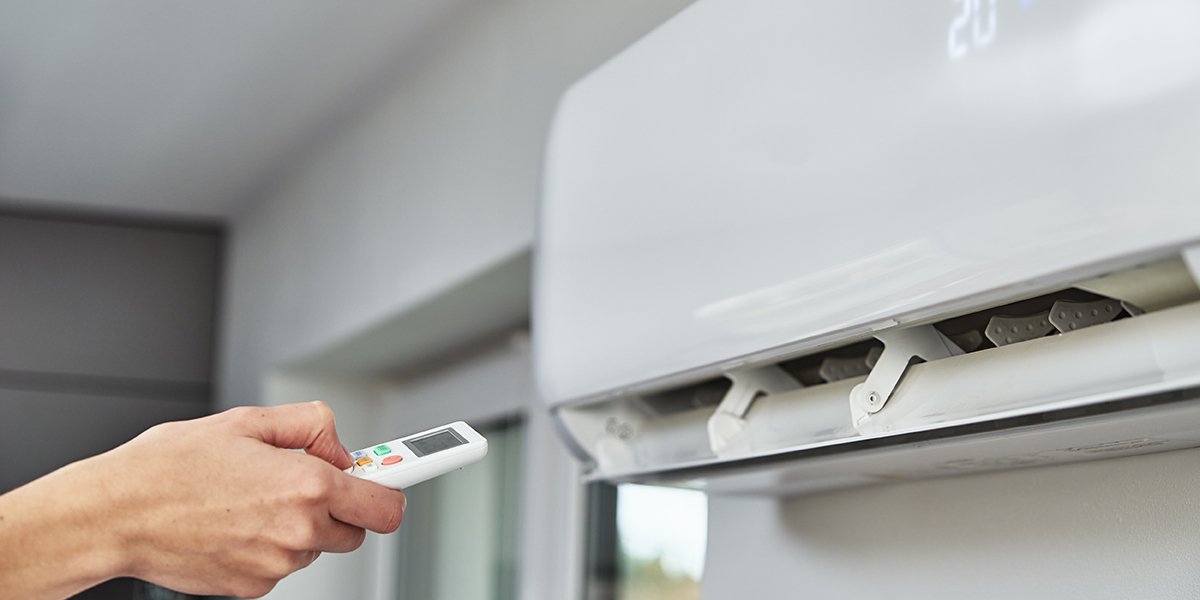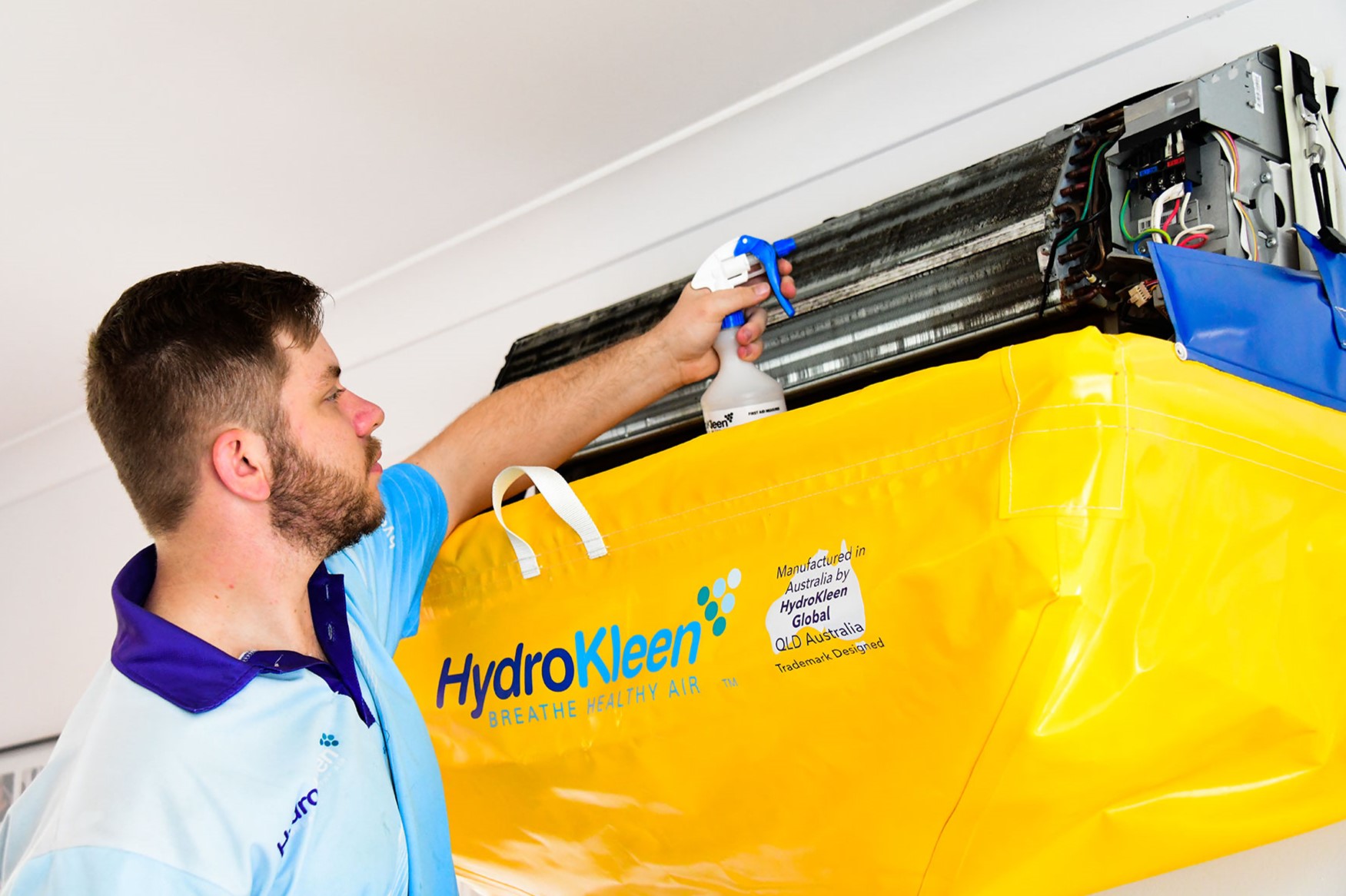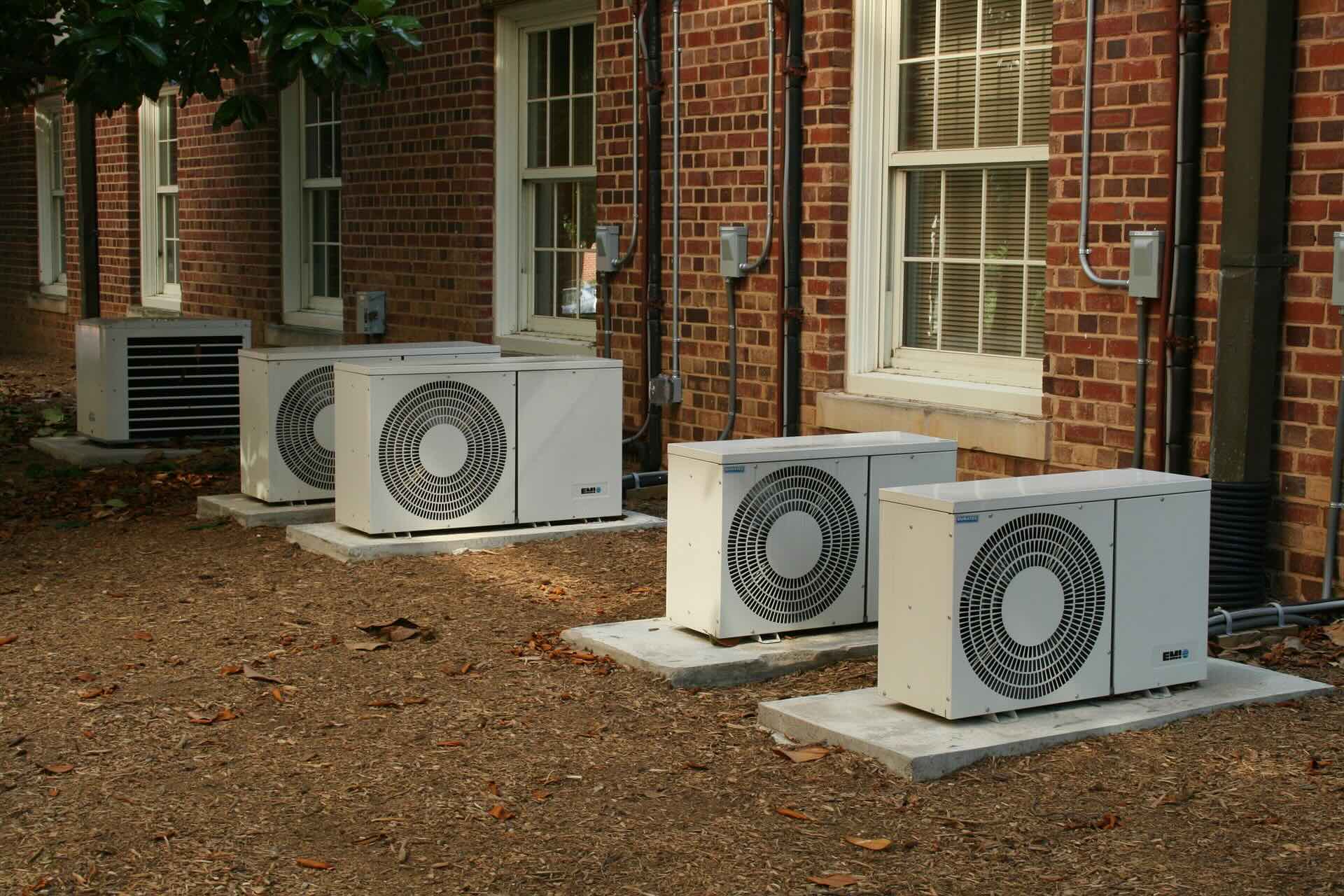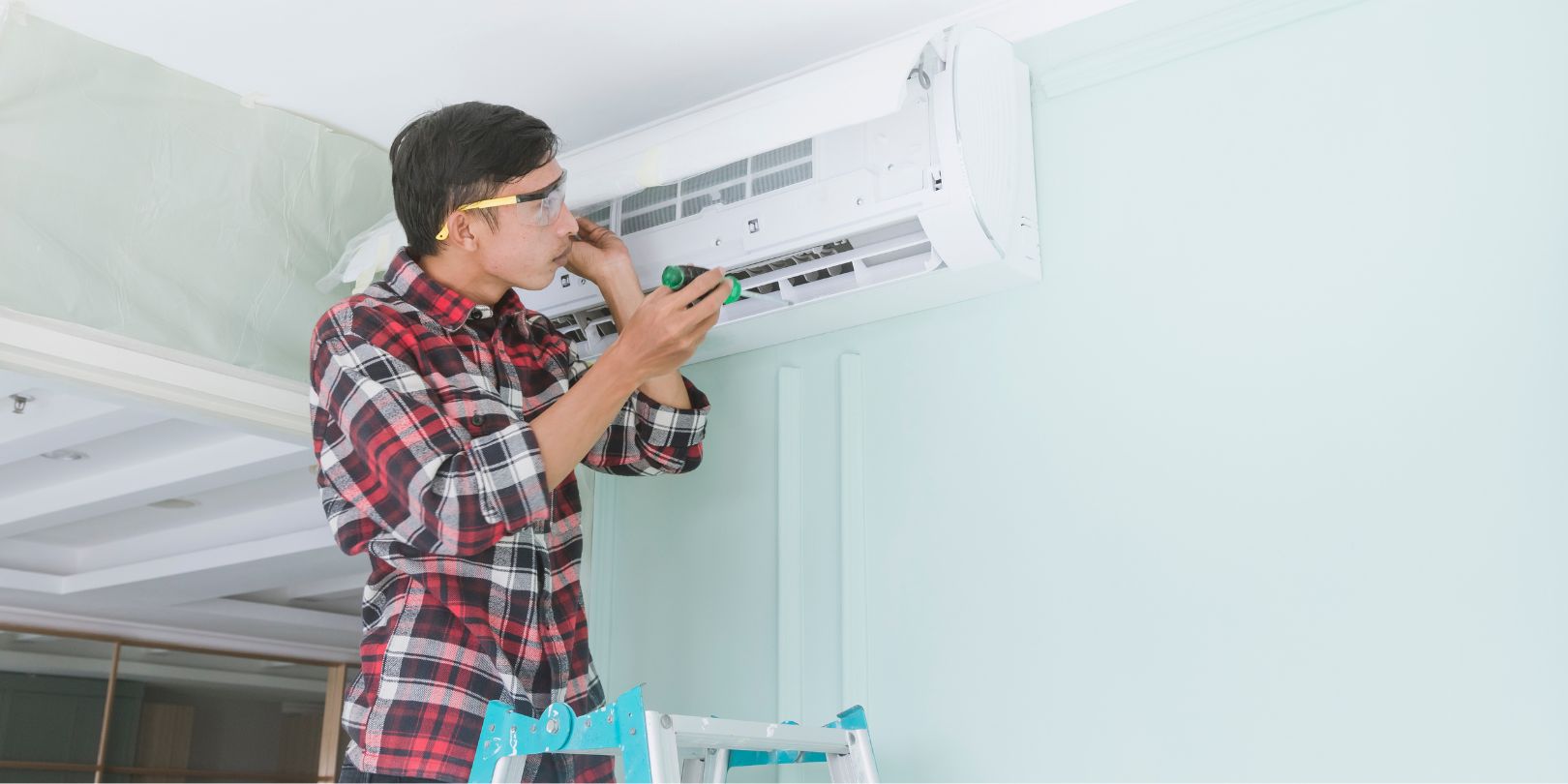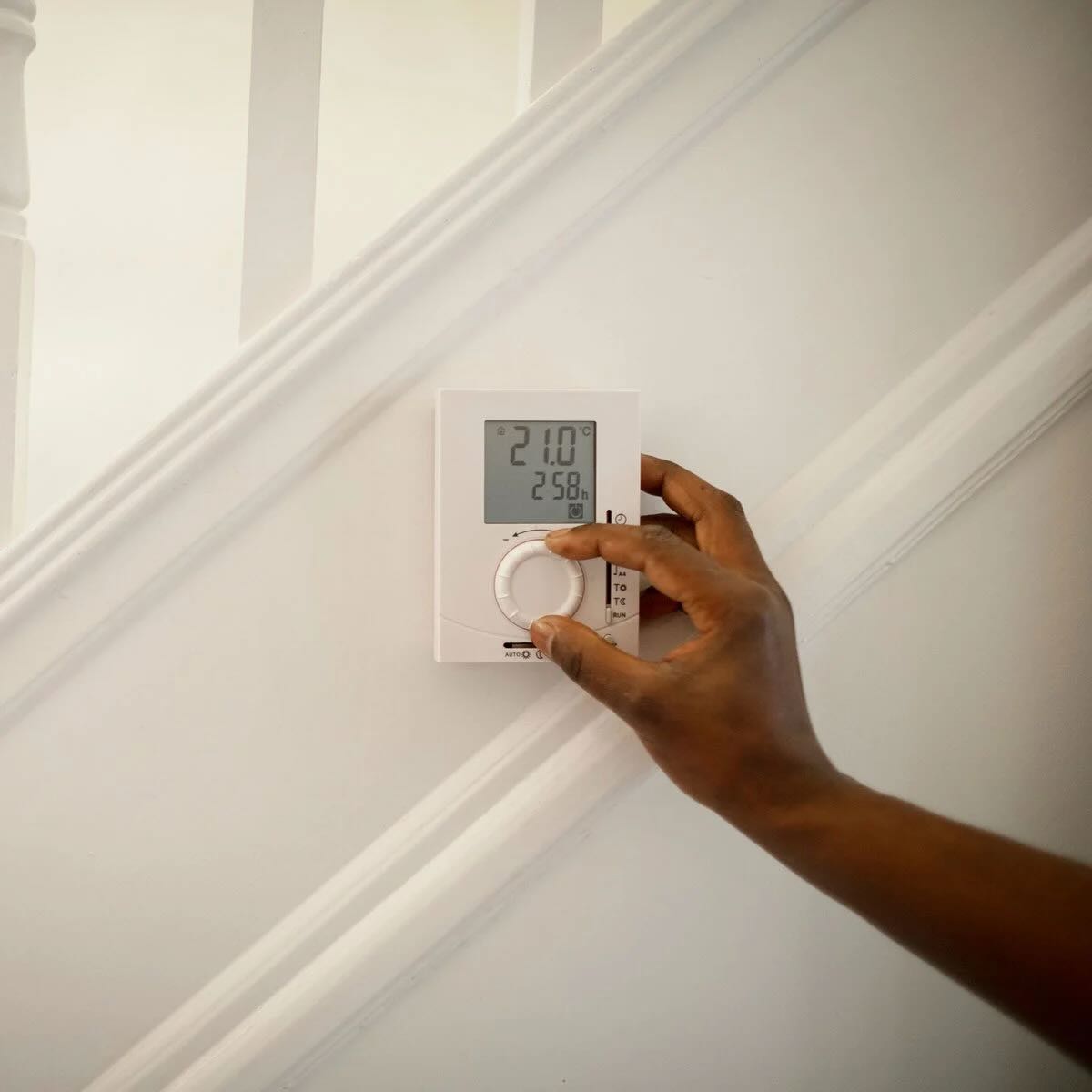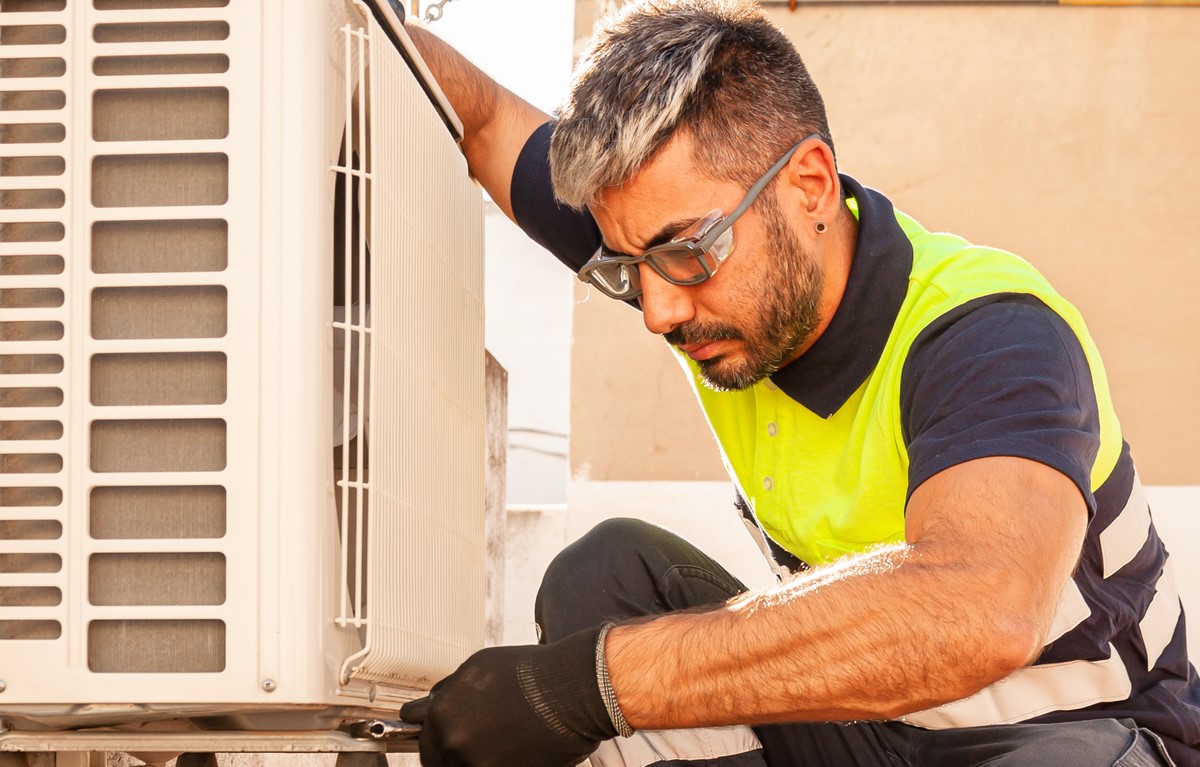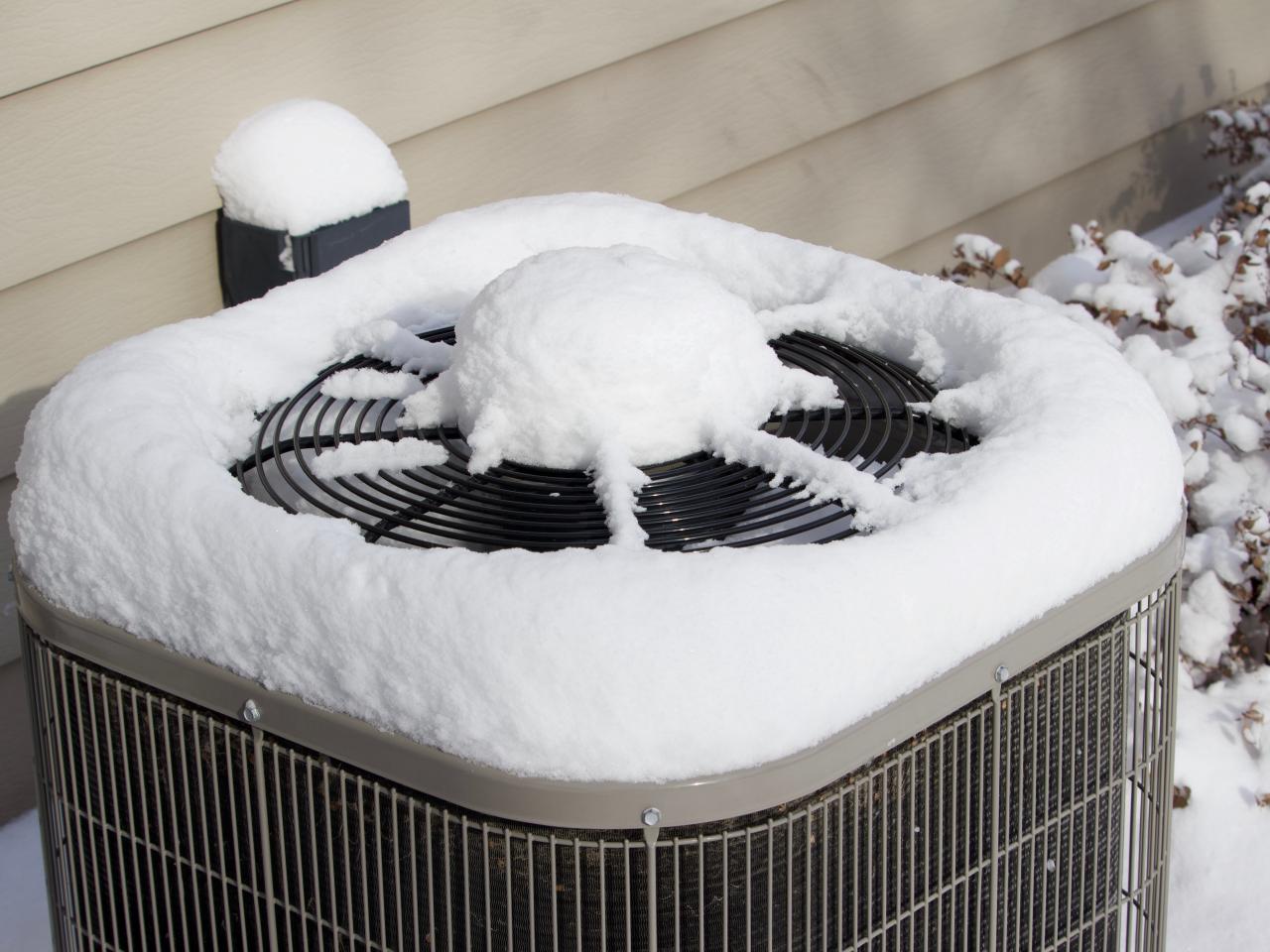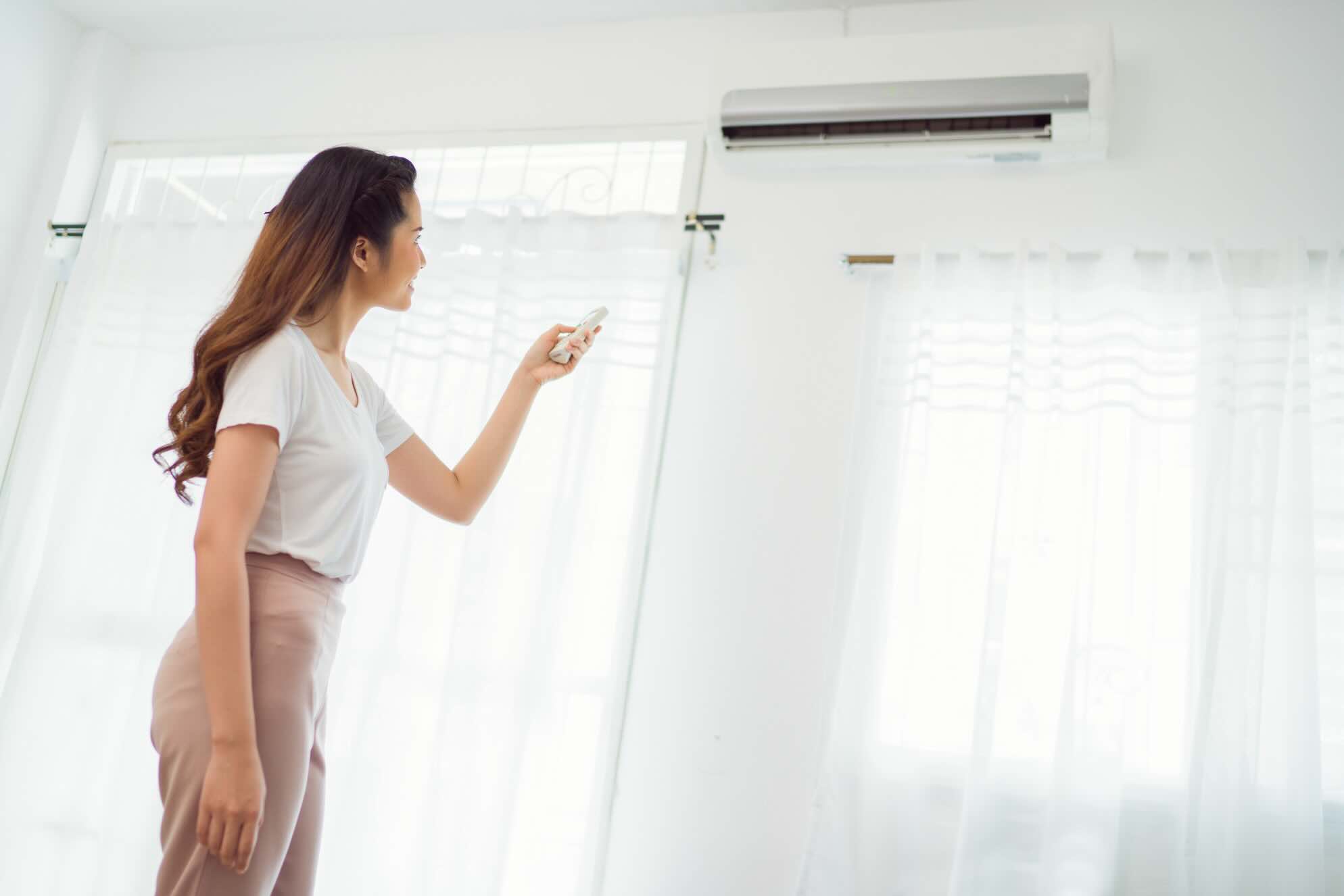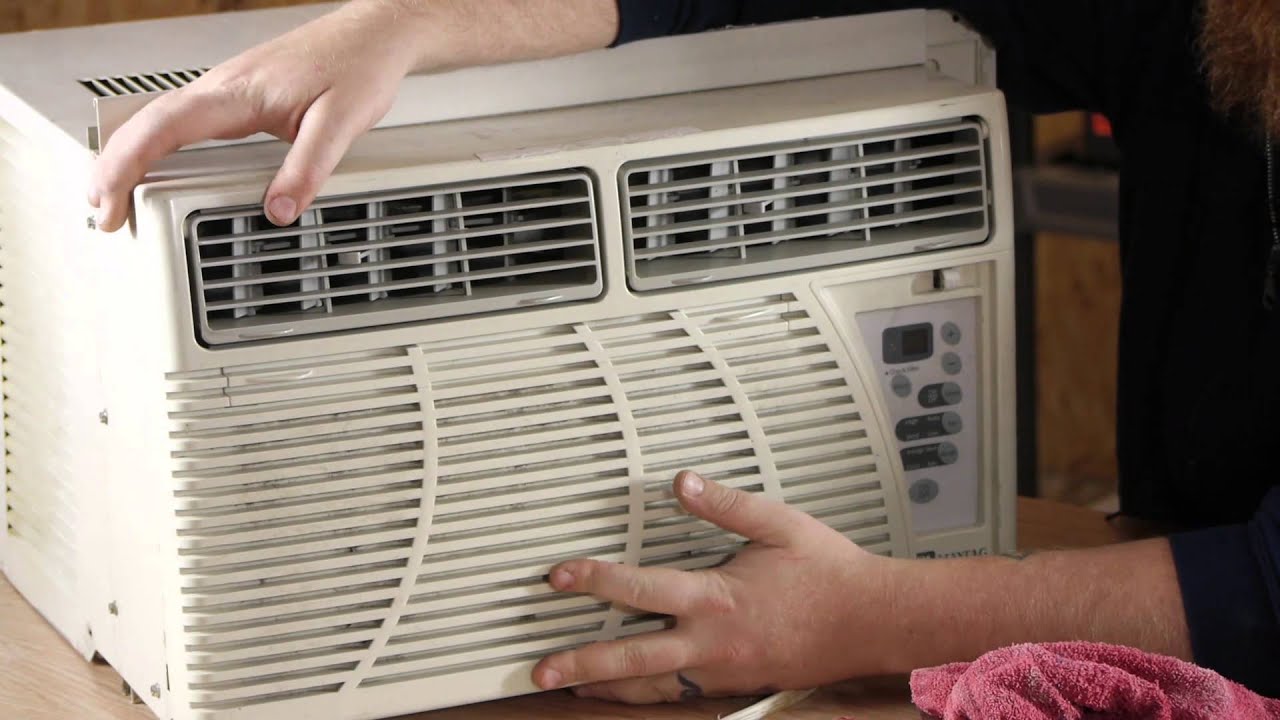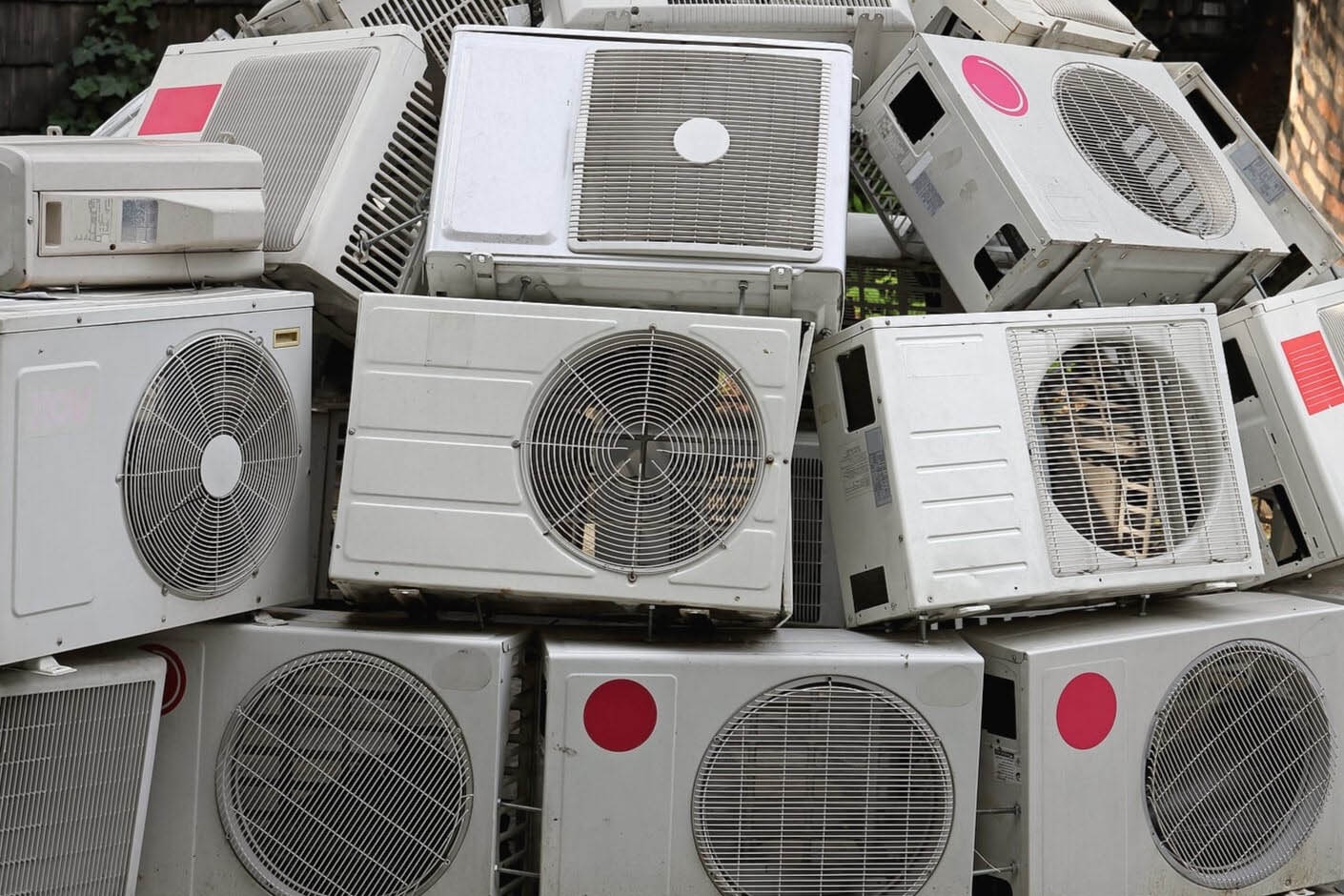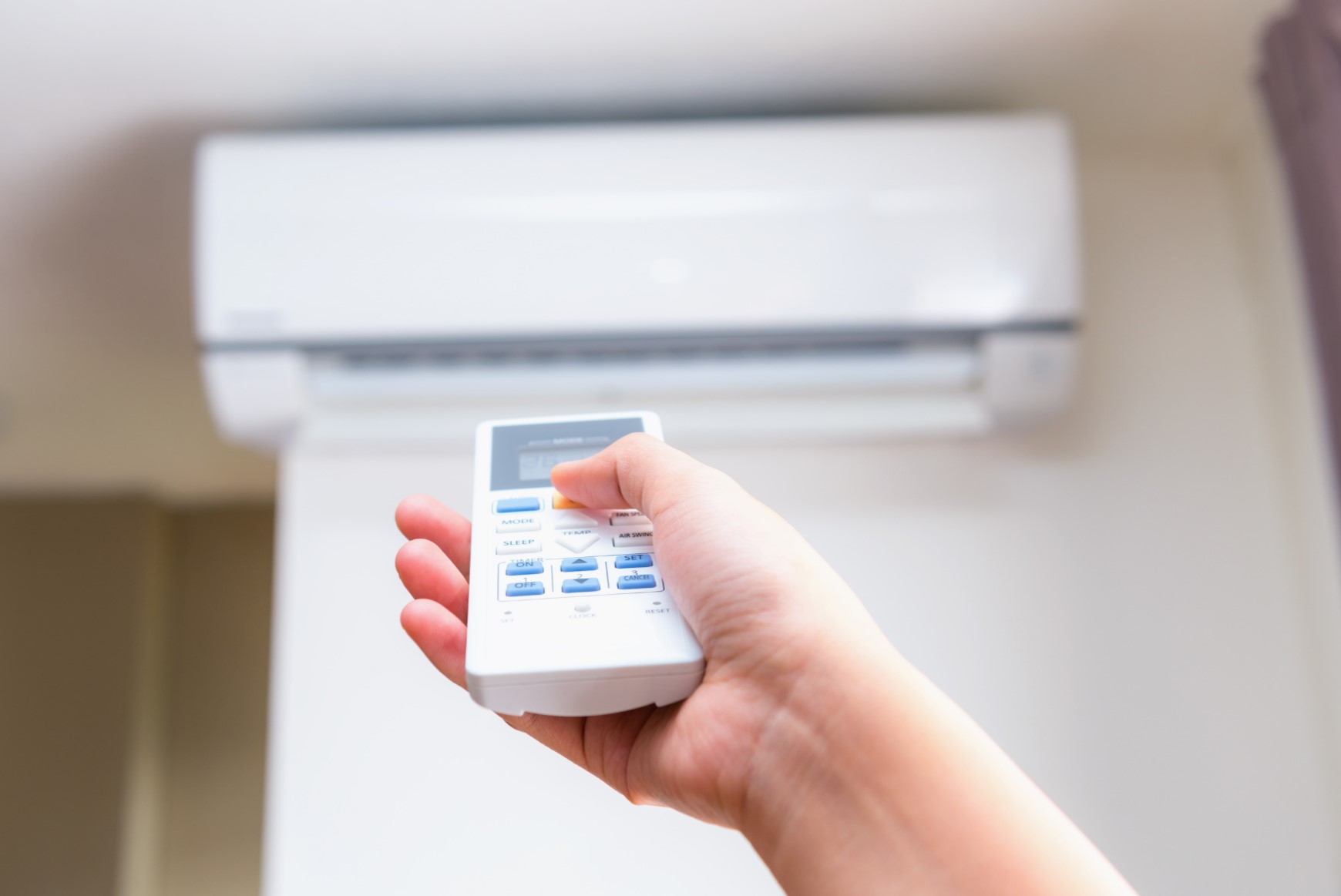Home>Home Maintenance>How Loud Should An Air Conditioner Be


Home Maintenance
How Loud Should An Air Conditioner Be
Modified: August 27, 2024
Find out how loud an air conditioner should be for optimal home maintenance. Discover the appropriate noise level and ensure a peaceful environment.
(Many of the links in this article redirect to a specific reviewed product. Your purchase of these products through affiliate links helps to generate commission for Storables.com, at no extra cost. Learn more)
Introduction
Welcome to the ultimate guide on how loud an air conditioner should be. As homeowners, we all want to enjoy a comfortable indoor environment while also considering the noise level of our cooling system. Nobody wants to be disturbed by a noisy air conditioner, especially during the hot summer months when it’s running most frequently.
When it comes to air conditioner noise, there are various factors that can influence how loud or quiet your unit is. From the design and quality of the equipment to its placement and maintenance, each aspect plays a role in determining the noise level.
In this article, we will explore these factors and provide you with the recommended noise level for residential air conditioners. We will also discuss how you can measure the noise level of your air conditioner and share some useful tips for reducing its noise. So, let’s dive in!
Key Takeaways:
- Choose an air conditioner with a noise level of 50-70 dB for a comfortable indoor environment. Aim for 50-55 dB or lower for bedrooms to ensure peaceful sleep.
- Reduce air conditioner noise by regular maintenance, insulation, strategic placement, and considering a quieter unit. Create a peaceful indoor environment for your family.
Read more: How To Quiet A Loud RV Air Conditioner
Factors Affecting the Noise Level of an Air Conditioner
When it comes to the noise produced by an air conditioner, there are several important factors to consider. Understanding these factors can help you choose a unit that operates at an acceptable noise level for your home. Here are the main factors that contribute to the noise level of an air conditioner:
- Size and type of the unit: The size and type of air conditioner can significantly affect its noise level. Generally, larger units produce more noise than smaller ones. Additionally, the type of unit, such as window, split, or central air conditioners, can also impact the noise level.
- Fan and compressor noise: The main components of an air conditioner that produce noise are the fan and compressor. The fan circulates the air, while the compressor is responsible for cooling it. The design and quality of these components can vary across different models and brands, resulting in different noise levels.
- Location and placement: The location and placement of the air conditioner can have a significant impact on the noise it produces. Window units positioned near bedrooms or living areas may cause more disturbance than those installed in less frequented areas. Additionally, inadequate insulation or loose fittings can amplify the noise.
- Maintenance and age: Regular maintenance is crucial for keeping your air conditioner running smoothly and quietly. Over time, components can become dirty or worn, leading to increased noise levels. Cleaning or replacing filters, lubricating moving parts, and addressing any mechanical issues can help reduce noise.
- Soundproofing and insulation: The level of soundproofing and insulation in your home can affect how much noise is transmitted from the air conditioner. Good insulation in walls, floors, and ceilings can help absorb and reduce the noise, providing a quieter indoor environment.
It’s important to consider these factors when choosing and maintaining an air conditioner to ensure that it operates at an acceptable noise level for your needs. By understanding these factors, you can make an informed decision and take steps to minimize any unwanted noise in your home.
Recommended Noise Level for Residential Air Conditioners
When it comes to the noise level of residential air conditioners, there is no set standard that applies to all situations. Different people have different levels of sensitivity to noise, and what may be acceptable to one person may be bothersome to another. However, there are some general guidelines that can help you determine a recommended noise level for your air conditioner.
The noise level of an air conditioner is typically measured in decibels (dB). In residential settings, a noise level of around 50-70 dB is considered acceptable. This range is comparable to the noise level of normal conversation or background music. It should be noted that some air conditioner manufacturers provide information on the noise level of their units, allowing you to compare and choose a quieter option.
For bedrooms, a quieter air conditioner is often desired to ensure a good night’s sleep. In these cases, aiming for a noise level of around 50-55 dB or lower is recommended. This level is similar to the sound of a quiet office or a gentle rainfall, ensuring a peaceful and undisturbed sleep environment.
On the other hand, in larger living areas or open spaces, a noise level of up to 70 dB may be more acceptable. This level is comparable to the noise of a vacuum cleaner or a crowded restaurant. Keep in mind that the noise level should still be tolerable and not cause excessive disruption or annoyance.
It’s important to assess your own tolerance for noise and consider the specific needs and preferences of your household. If noise sensitivity is a concern, you may opt for air conditioners equipped with noise-reducing features, such as insulated compressor compartments or variable-speed fans.
Ultimately, finding the right balance between cooling performance and noise level is essential for a comfortable living environment. Evaluating the noise level specifications, considering your personal preferences, and seeking expert advice can help you select an air conditioner that meets your desired noise level requirements.
When choosing an air conditioner, look for one with a decibel (dB) rating of 50 or lower for indoor units and 60 or lower for outdoor units. This will ensure a quieter operation, especially for indoor use.
How to Measure the Noise Level of an Air Conditioner
Measuring the noise level of an air conditioner can help you determine its actual decibel (dB) output and assess whether it falls within an acceptable range. Here are the steps to measure the noise level of your air conditioner:
- Choose a suitable location: Select a location near your air conditioner where you want to measure the noise level. It could be inside your home, near the indoor unit, or outside, near the outdoor unit. Make sure the area is relatively quiet and free from other sources of noise that could interfere with the measurement.
- Use a sound level meter: A sound level meter is a device specifically designed to measure sound levels. These devices can be purchased or rented from hardware stores, or you can download sound level meter apps on your smartphone. Ensure that the sound level meter is calibrated and set to measure A-weighted decibels (dBA), as this is the most commonly used weighting scale for measuring environmental noise.
- Position the sound level meter: Place the sound level meter at the location you have chosen. It is important to position the meter at the same height as your ears, as this will provide a more accurate measurement. If you are measuring the noise level of the outdoor unit, make sure to protect your sound level meter from direct exposure to the elements.
- Turn on the air conditioner: Start your air conditioner and allow it to run at its normal operating mode. Let it stabilize for a few minutes before taking the measurements to ensure consistent results.
- Take multiple readings: Take several readings at different time intervals to get a more accurate average noise level. This can help account for any fluctuations in noise that may occur during the air conditioner’s cycling or due to external factors.
- Record and analyze the measurements: Write down the decibel readings from your sound level meter and analyze the average noise level. Compare the measurements with the recommended noise levels discussed earlier. If the noise level exceeds the acceptable range, you may want to consider taking steps to reduce the noise, such as soundproofing or maintenance.
Remember that noise levels can vary depending on the specific air conditioner model and its operating conditions. Additionally, keep in mind that professional sound level meters may provide more accurate readings than smartphone apps. If you are concerned about the noise level of your air conditioner, consulting with a qualified HVAC professional can provide further insights and recommendations.
Tips for Reducing Air Conditioner Noise
If you find that your air conditioner is producing excessive noise and causing disturbance in your home, there are several strategies you can implement to help reduce the noise level. Here are some tips to consider:
- Regular maintenance: Keeping your air conditioner well-maintained can go a long way in reducing noise. Clean or replace air filters regularly, lubricate moving parts, and ensure that all components are in good working condition. Regular maintenance will not only improve the efficiency of your unit but also minimize noise caused by worn-out parts.
- Insulate or soundproof: Adding insulation to the walls, ceilings, and floors near the air conditioner can help absorb and minimize the noise. Consider using acoustic tape or seals around the unit to reduce vibration and prevent noise transmission. Utilize thick curtains or soundproofing materials on windows and doors to further dampen the noise.
- Check for loose parts: Vibrating or loosely fitted parts can contribute to increased noise levels. Check for any loose screws, bolts, or panels and tighten them as necessary. If you are unsure about how to do it, consult a professional HVAC technician to ensure proper tightening without damaging the unit.
- Strategic placement: Pay attention to where your air conditioner is installed. If possible, avoid placing the unit near bedrooms or areas where you spend most of your time. Instead, opt for a location that is less frequented, such as the basement or an outside wall away from living spaces. This can help minimize noise impact on daily activities and sleep.
- Upgrade to a quieter unit: If your current air conditioner is consistently noisy and causing significant disruptions, consider upgrading to a quieter model. Look for units that are specifically designed for reduced noise, which may include features like insulated compressor compartments or variable-speed fans. Check the noise level specifications provided by the manufacturer to ensure the unit meets your desired noise requirements.
- Consider a sound barrier: If the outdoor unit is the primary source of noise, erecting a barrier around it can help mitigate sound transmission. This can be a fence or a structure designed to redirect the noise away from your living areas. Consult local building codes and regulations to ensure compliance when installing any type of barrier.
Implementing these tips can significantly improve the noise level of your air conditioner, providing a more peaceful and comfortable indoor environment. If the noise persists or if you feel that there might be an issue with the unit, it is always advisable to seek assistance from a professional HVAC technician to diagnose and resolve the problem.
Conclusion
Choosing an air conditioner with an appropriate noise level is important for maintaining a comfortable and peaceful indoor environment. While there is no specific standard for how loud an air conditioner should be, understanding the factors that affect noise levels and following recommended guidelines can help you make an informed decision.
Factors such as the size and type of the unit, fan and compressor noise, location and placement, maintenance, and soundproofing can all contribute to the overall noise output of an air conditioner. By considering these factors, you can select a unit that meets your specific noise requirements.
When it comes to recommended noise levels for residential air conditioners, a range of 50-70 dB is generally acceptable. However, for bedrooms, aiming for a noise level of around 50-55 dB or lower is often desired to ensure a peaceful sleep environment.
To measure the noise level of your air conditioner, you can use a sound level meter and take multiple readings for accuracy. This will enable you to evaluate the actual decibel output and determine if it falls within an acceptable range.
If you find that your air conditioner is producing excessive noise, there are several tips you can follow to reduce it. Regular maintenance, insulation and soundproofing, checking for loose parts, strategic placement, upgrading to a quieter unit, and considering sound barriers are all effective strategies to minimize noise levels.
In conclusion, a well-chosen and properly maintained air conditioner can provide cool comfort without becoming a noise nuisance. By considering the noise level in addition to other features when purchasing an air conditioner, and by implementing noise reduction techniques, you can create a peaceful and relaxing indoor environment for you and your family.
Frequently Asked Questions about How Loud Should An Air Conditioner Be
Was this page helpful?
At Storables.com, we guarantee accurate and reliable information. Our content, validated by Expert Board Contributors, is crafted following stringent Editorial Policies. We're committed to providing you with well-researched, expert-backed insights for all your informational needs.
